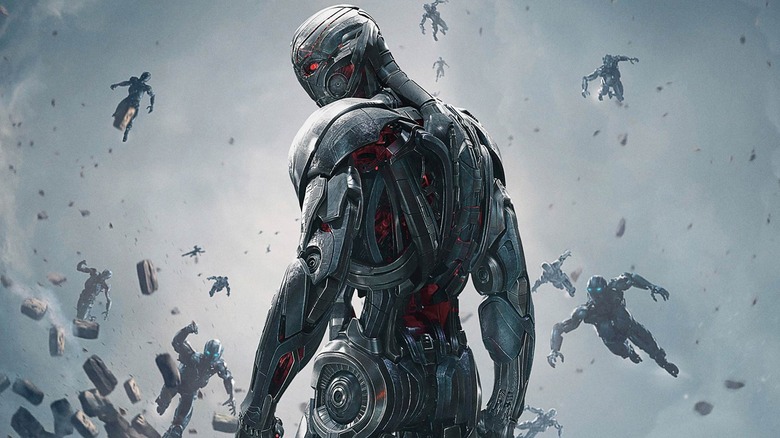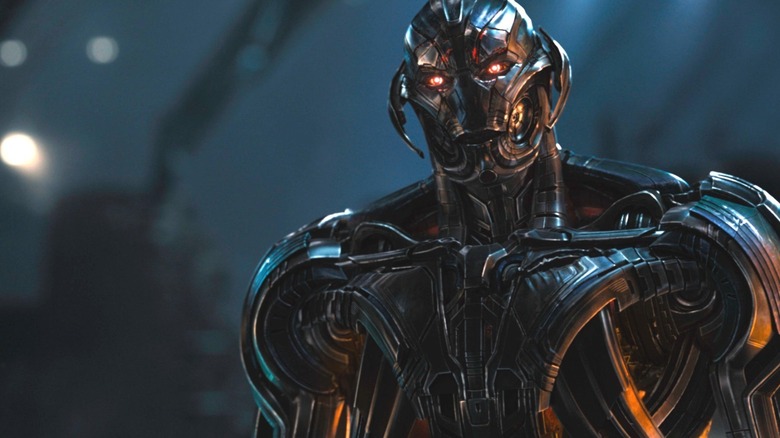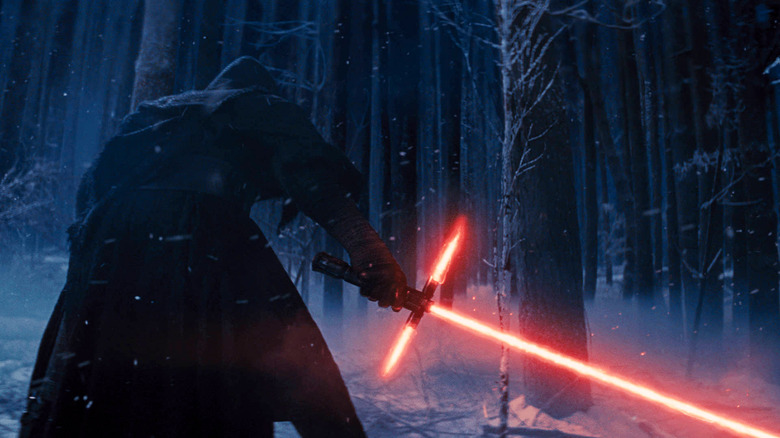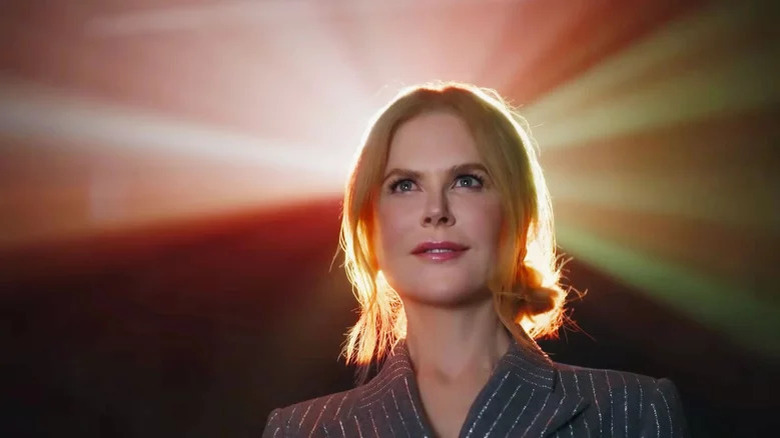Why Germany Boycotted Avengers: Age Of Ultron (And Why It Was Disney's Fault)
"Avengers: Age of Ultron" was a more ambitious movie than the original "Avengers" (Ideas? In a Marvel movie?!) but it didn't reach the same phenomenon status with the general public. As it was also the end of now-disgraced writer/director Joss Whedon's involvement in Marvel, "Age of Ultron" has acquired something of a red-headed stepchild reputation.
As far as cold, hard numbers go, "Age of Ultron" didn't pass its predecessor at the box office ("Avengers" made 1.5+ million, "Age of Ultron" made 1.4+ million). But the movie would've crossed gotten closer to that a billion-and-a-half finish line if it had played across Germany. As reported by Deutsche Welle (Germany's public broadcasting corporation), when the film premiered in Germany on April 23, 2015, 686 movie screens located across 193 small towns (meaning populations of 50,000 people or less) didn't show the movie. German Marvel fans would have to head to metropolises and their multiplexes to see the "Avengers" sequel.
Why this boycott? You might be thinking it had something to do with the film's portrayal of Europe (the fictional country Sokovia is portrayed as infested with Nazis and gets leveled in the film's climax). Nope! It was all because of the film's distributor, Disney, and its greed.
The House of Mouse wields its power
The key point of contention was rental fees — Disney's cut of the theaters' ticket sales for the movie. Ahead of "Avengers: Age of Ultron," Disney raised its fee in Germany from 47.7% to 53%. The studio also decreased its contribution to advertising costs and removed advances for 3-D glasses.
It's likely that since Disney knew "Age of Ultron" would be a hit, they wanted an even bigger piece of the pie, and had the leverage to demand it. This is also why it was smaller theaters (particularly those in North Germany, according to the report) that boycotted; they'd be losing out on money that was vital to their operations' cost. Karl-Heinz Meier of advocacy group I.G. Nord told Deutsche Welle that the larger chain theaters "would like to support us, but they can't because of their contracts."
It should be noted that struggling German theaters are also eligible for public arts funding, but Disney's new rental fees would just eat that assistance up. "The cinemas that have received public funding are being pushed up against a wall with rental pricing that [is] 5.3% higher, and that means taxpayers' money in the form of sustainable cultural support is in danger," said Andreas Kramer of the German lobbying group Hauptverband Deutscher Filmtheater.
The boycott put exhibitors between a rock and a hard place: either relent, screen the movie, and accept the new conditions, or don't screen it and lose out on a big attraction for audiences. Both options meant losing out on money and potentially risking their future survival. However, the boycotting theaters ultimately held firm.
An unequal playing field
The reporting trails off after this (at least stateside), so it's not clear how things played out after the initial boycott, but it looks like the protest was mostly symbolic. Disney held most of the cards at the bargaining table, and had much greater cash reserves than any one small theater in Germany. Moreover, the German box office had only accounted for around 2.2% of the international total for "The Avengers," so Disney could easily have weathered even a country-wide boycott.
As it was, "Age of Ultron" actually ended up grossing slightly more than "The Avengers" had in Germany. However, information from Box Office Mojo indicates that the sequel was released in fewer theaters than "The Avengers" had been, so the boycott may well have ended up costing Disney a few million Euros in ticket sales.
This episode illustrates the imbalanced market power between studios and theaters, especially as blockbusters began to swallow up ever more of the film industry. Since theaters often bank on making most of their profits via huge blockbusters, that ultimately puts them at the mercy of those films' distributors.
Indeed, theater owners' discontent wasn't localized to only Germany. According to contemporary reporting by the Wall Street Journal, theater owners in the U.S. and Canada agreed to give Disney 60% of ticket sales in 2013, ahead of the release of "Iron Man 3," and that's what Disney would have collected on "Age of Ultron." When a film is expected to be a box office smash (the WSJ cites $500 million domestic gross or higher), the studios demand a bigger cut than the traditional 50/50 split rental fee. In 2017, Disney became even bolder and set a 65% fee for theaters to screen "Star Wars: The Last Jedi."
The future of Disney and theaters
In 2021, there was another international boycott of a Disney/Marvel movie, "Black Widow," this time in theaters across Europe (including Germany) and Japan. The issue here, as described by the German branch of theater chain Cineplex, was the simultaneous release of the film on Disney+; Disney's high rental fees, the lack of exclusivity, and the limited operating capacity necessitated by COVID-19 meant that screening "Black Widow" simply wasn't worth it for many German theaters.
The very fact that Disney chose to do same-day streaming releases indicates that it took theatrical distribution for granted. The one market where Disney doesn't have the leverage, though? China. Since 2012, the studio has taken only a 25% rental fee from Chinese theaters, the national limit for foreign movies as set by regulators. Since China is a huge market for the film industry, Disney is willing to abide a smaller cut there.
The studio may now have to give ground elsewhere too, as Disney no longer has the near-monopolistic grip it once had on the film industry. At the North American domestic box office this year, only three Disney films — "Guardians of the Galaxy Vol. 3," "Avatar: The Way of Water," and "Ant-Man and the Wasp: Quantumania" — have reached the top 10. Even among those, the latter underperformed; "Quantumania" grossed only $215 million domestically, quite a bit lower than the $500 million benchmark of Marvel's heyday.
At the end of the day, theaters need audiences as much as they need films. If moviegoers stop showing up for Disney's films, that means Disney's control over rental terms with theaters becomes less ironclad. That economic reality was not the case when "Age of Ultron" was released back in 2015, but it could be when "Avengers: The Kang Dynasty" arrives in 2026. Ultimately, Disney can only be as greedy as the market allows.



